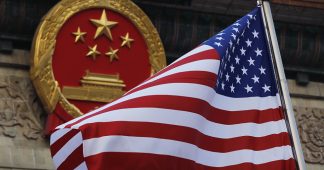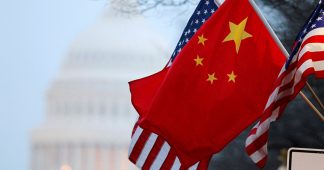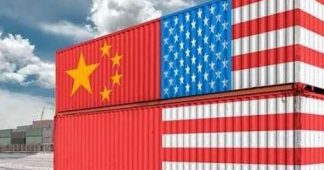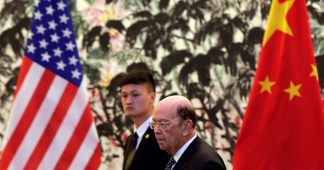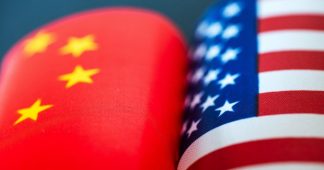By Dave Lawler
Aug. 7, 2020
President Trump’s rhetoric on China has tended to run hotter than his actions — until now.
Why it matters: Even at the height of Trump’s trade war, his administration never hit China as hard, as fast, and on as many fronts as it is right now.
- Thursday night, Trump escalated his campaign to claw apart the Chinese and American tech worlds with executive orders that threaten to ban both TikTok and massive global messaging app WeChat.
- On Friday, the Treasury Department sanctioned Carrie Lam, Hong Kong’s Beijing-backed leader for “implementing Beijing’s policies of suppression of freedom and democratic processes.”
- That move follows sanctions on the Xinjiang Production and Construction Corps, a powerful paramilitary organization, for its role in the mass detention of ethnic minorities.
- The U.S. has closed China’s consulate in Houston, stepped up its efforts to keep Chinese telecom giant Huawei out of allies’ 5G networks, and even warned blue chip American companies that they could face legal penalties for doing Beijing’s bidding.
- Health Secretary Alex Azar will soon become the highest-ranking U.S. official to visit Taiwan in four decades, in a pointed signal of support for the self-governing island that has infuriated Beijing.
Between the lines: In some cases, Trump has been responding to China’s actions — most notably, the draconian security law for Hong Kong. But there may be more to the sudden offensive.
- Politics: Trump is betting a tough-on-China push will resonate with voters in an election year, and his advisers — including trade adviser Peter Navarro, on our Pro Rata podcast — often cite polling suggesting he’s right to do so.
- Trade: Trump has admitted his desire to secure a trade deal with China caused him to pull punches in the past, including over the mass detentions in Xinjiang. Trade talks are now on ice, perhaps permanently.
- Markets: Thanks to the $2 trillion CARES Act and the Federal Reserve’s promise to do “whatever it takes” to support markets, investors have largely ignored trade war headlines and continued to bid stock prices higher.
The bottom line: It feels as though we’ve seen a decades’-worth of hawkish policies proposed or executed just in the past few weeks, notes Axios China reporter Bethany Allen-Ebrahmian.
- Many of these steps carry significant consequences, and not just for China.
